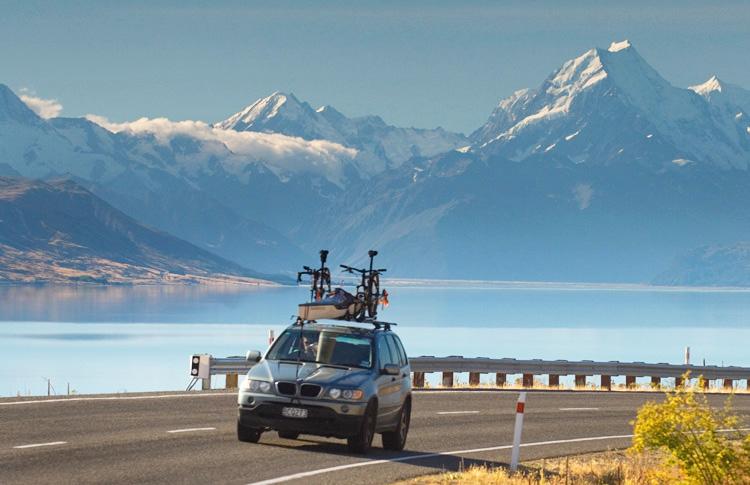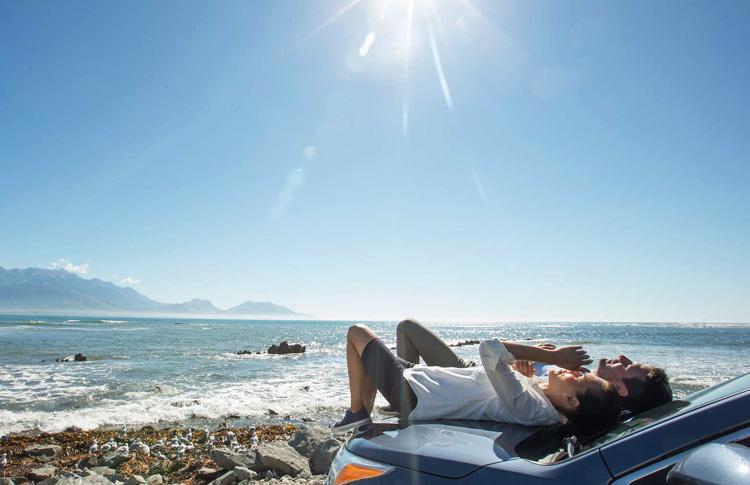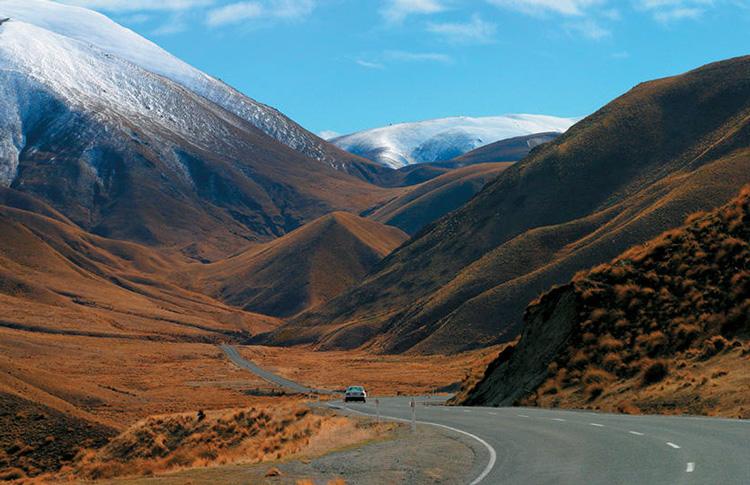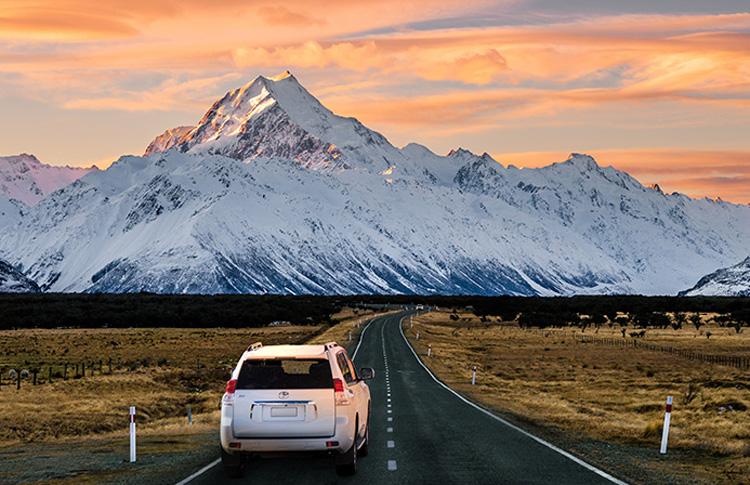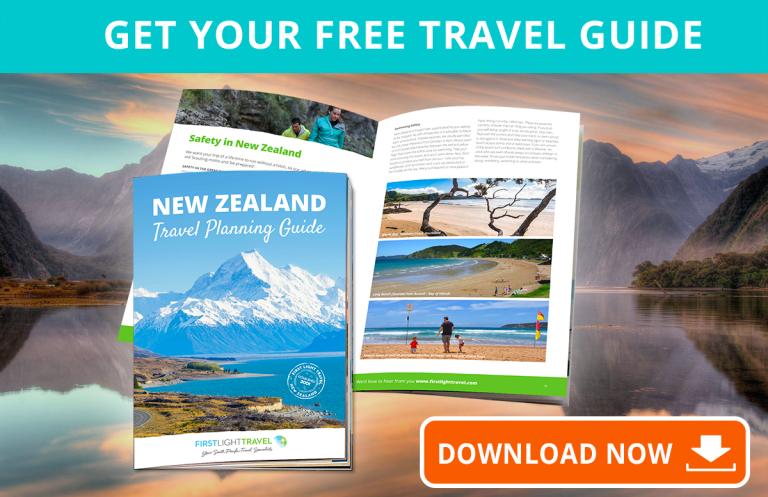Most likely, your New Zealand itinerary will be smooth and hassle-free if you're driving carefully. Occasionally accidents and breakdowns do happen though, and you want to feel confident that you'll be able to meet any costs incurred if they do.
That's where insurance comes in. While there's no one-size-fits-all rental car insurance advice that works for everyone, we'll break down the basics for you here and explain some common terms to help you decide what works best for you.
Our Number One Piece Of Advice - read the fine print!
When you buy something online, have you ever checked the "I have read the terms and conditions" box without actually reading anything? Most of us have probably done this at some stage, and it's usually fine.
Rental car insurance contracts can vary widely between companies - don't assume they all cover the same inclusions and conditions. Even if you frequently rent vehicles in your home country, insurance processes in New Zealand might be very different. You could end up assuming you're covered for something that isn't included.
Conversely you could end up paying for extra coverage that you don't need. All major rental car companies will display their terms and conditions on their website, so you can check through them before you buy.
Important terms
You will probably see a few terms that you haven't come across before if you have never rented a car in New Zealand. Here are some important ones:
ACC
What it is: ACC (Accident Compensation Corporation) is New Zealand's automatic no-fault personal injury insurance for anybody who is injured in an accident while in the country. It will cover injury-related medical costs while you are on New Zealand soil, and you don't have to apply for it beforehand - you're covered automatically.
What it does: ACC covers medical costs for absolutely anyone who is injured while in New Zealand, including overseas visitors. It's funded partly by government contributions and partly through levies on products like fuel or vehicle licensing fees.
Excess (deductible)
What it is: If you're from the USA, you may be familiar with the term "deductible", meaning the amount of money you pay before your insurance company begins to cover your costs when you need to make a claim.
In New Zealand a deductible is known as an excess.
What it does: Let's imagine your rental car agreement provides insurance with a $1000 excess. The car gets dented during your trip, and it will cost $2500 to repair. As long as the terms and conditions on your rental agreement have been met (more on this later), you will only need to pay $1000 towards the repair bill, and the rental company will pay the remaining $1500.
Collision Damage Waiver (CDW) or Loss Damage Waiver (LDW)
What it is: In New Zealand it is mandatory for rental car agencies to include basic insurance as part of your hire fee. Generally this includes protection for your vehicle against collision and theft - the terms and conditions of your rental agreement will give you more details.
There will usually be an excess, as mentioned above. What if you don't want to have to pay an excess of several thousand dollars? That's where the Collision Damage Waiver (CDW) or Loss Damage Waiver (LDW) comes in.
The CDW or LDW is a waiver between you and the insurance company, usually in the form of an extra daily fee. If you pay the extra daily fee, the insurance company waives their right to charge some or all of the excess fee.
What it does: If the excess is $1500, and you're hiring the car at a cost of $50 per day, the rental company might offer to waive the whole excess if you pay an extra $10 fee per day. Or they might offer to reduce the excess from $1500 to $300 if you pay an extra $5 fee per day on top of your hire rate.
Bond or deposit
What it is: To ensure that you are able to pay for possible vehicle damage, many companies will seek assurance that you have funds to pay your excess fee before they will give you the keys to the car. This is usually in the form of a credit card bond or deposit payment. The bond amount is usually equal to the amount of the excess fee on your contract.
What it does: When you pick up your car, some companies merely keep a copy of your credit card details on file and only use them if damage occurs. Some companies put a "hold" on your credit card for the full excess amount. Some charge you the full amount as a deposit and refund it to you at the end of the rental period.
If the excess fee on your contract is $1500, you would lose access to $1500 on your credit card until the car is returned undamaged.
If you choose to pay the extra daily fee for the CDW / LDW waiver, the bond amount may be reduced accordingly.
For example if you pay for your excess (deductible) to be reduced from $1500 to $0, your bond payment may also be reduced from $1500 to $0.
To avoid unwelcome surprises when you pick up your car it's definitely worth checking the terms and conditions before you travel to find out how your rental company handles the bond / deposit process.
New Zealand Rental Car Insurance - The Basics
We mentioned earlier that New Zealand car rental companies must include basic motor vehicle insurance in their daily rate. You'll need to check your rental agreement to find out precisely what this includes, but it's likely to cover:
- Damage to the vehicle and any towing costs
- Damage to a third party's vehicle and property
- Theft or vandalism of the vehicle
- Loss of use (money lost by the rental company because the car can't be used for other clients while damage is being repaired)
But - and this is a big but - if you don't look after the car responsibly, it may invalidate your insurance, and the company will have the right to refuse to pay. Check out the Hirer's Obligations, Insurance Exclusions, and Vehicle Use sections of the rental agreement, you might find some of these examples:
- Driving on unsealed roads
- Committing a traffic violation such as running a red light
- Driving under the influence
- Running out of fuel
- Taking the car on a ferry without permission
- Night-time driving in certain areas in winter
- Forgetting to lock the vehicle when unattended
Seeing all the exclusions can be frustrating, but most of them are common sense, and there's usually a good reason for them - for instance, icy mountain roads can be genuinely treacherous at night so it's much safer to use them during the day.
On the bright side you can view the exclusions as a comprehensive guide to avoiding the most common causes of accidents on the road - they'll teach you a lot about the best ways to stay safe.
Injury - you are already covered.
As we've mentioned previously, ACC covers New Zealand-based medical costs for anyone injured in an accident within the country.
Since it is a no-fault scheme, you cannot be sued for causing an injury, and you cannot sue anyone for causing you an injury. This is why your NZ car rental insurance policy won't include cover for personal or third party injury.
ACC does have limits - it only covers treatment while you are within New Zealand, not ongoing treatment after you have left the country. You would need travel insurance to cover ongoing medical care if needed when you return home.
Common Questions
I read that third party insurance isn't compulsory in New Zealand. What if an uninsured driver crashes into me?
If you have a collision with an uninsured driver your insurance company will do its best to recover the costs from the guilty party.
If your insurer cannot recover their costs, they might be taken from your excess. However, you may be able to claim this money back if your travel insurance policy allows it.
Can I choose my own insurance instead of the rental company's?
Some companies allow you to do this, but they may ask you to arrange it a few weeks in advance and send them the policy - they can refuse or cancel the rental if they feel your cover isn't adequate, so be sure to discuss it with them as early as possible.
I have travel insurance, won't this cover me for everything?
It's worth checking your travel insurance contract - many will cover the excess fee if you have a mishap on the road. However, your rental car company has a contract with you, not with your travel insurance provider. So if an incident occurs you will need to pay the excess fee to rental company first, and then claim back the cost on your travel insurance later.
If you can afford to pay your excess upfront and wait until later for reimbursement, travel insurance might be enough peace of mind for you. If not, you might want to consider the CDW/LDW offered by the rental company for extra peace of mind.
I have insurance with my credit card provider, won't that protect me?
It depends entirely on the credit card provider. Some have a clause stating that their car rental cover is not valid in New Zealand, so be sure to check with them first. This is because some credit card providers require you to waive all other insurance if you want to rely on theirs. This isn't usually possible in New Zealand because of the automatic ACC and basic insurance built into the rental contract.
In Summary - our top suggestions for peace of mind
- Read your rental agreement thoroughly and ask about anything you don't understand
- Decide how much risk you are comfortable with carrying and choose your level of insurance accordingly
- Your medical costs (or a third party's) are automatically covered by ACC in New Zealand, but you'd still need travel insurance to cover ongoing medical costs when you get home
- If you don't opt for an excess waiver (CDW / LDW), make sure you have enough funds on your credit card to pay the bond when you pick up the car
- Always lock the car when unattended, check the oil, and make sure the lights are switched off when not in use.
- Consider paying extra for glass insurance if it's not included in the basic policy - there are a lot of loose stones on some of our roads!
- Fill up on fuel before long drives (especially if travelling in more remote areas such as the West Coast of the South Island)
- Above all, remember that if you drive sensibly and take care of the car as if it were your own, you're likely to have a stress free holiday!
All of our New Zealand self drive itineraries have been tried and tested for nearly 20 years - why not let us build a custom itinerary that ticks all your boxs. Fill out our enquiry form and receive the perfect New Zealand holiday itinerary for FREE!



